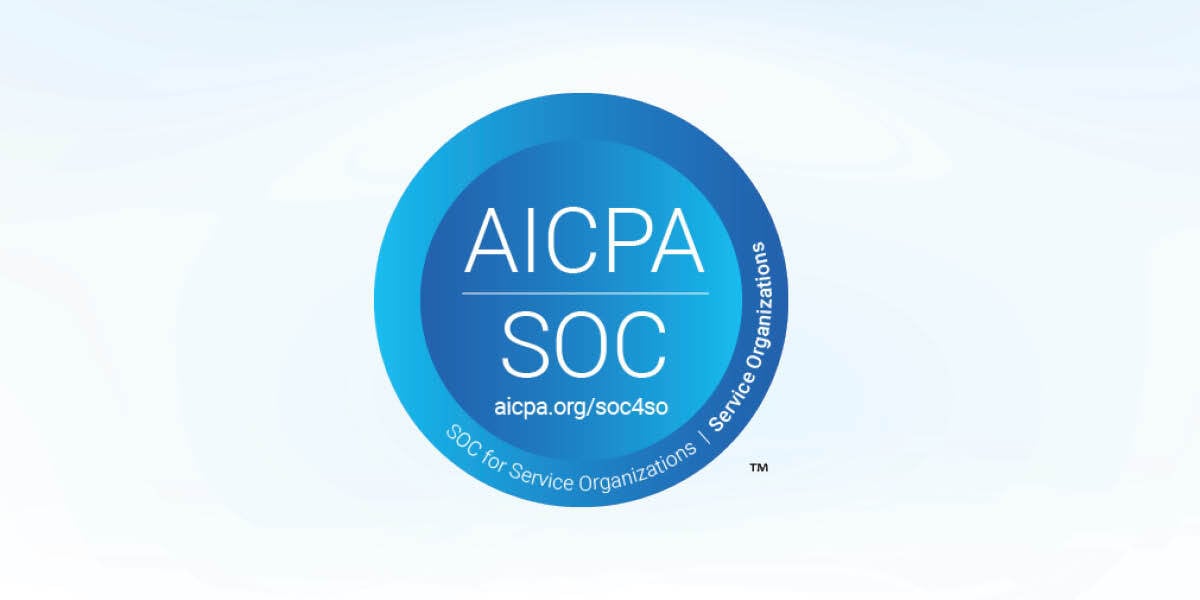
The pandemic prompted many changes in teaching and learning. One aspect that experienced tremendous transformation was in proctoring. Many traditional on-site proctoring methods were no longer practical, and new online proctoring methods and hybrid proctoring approaches needed to be evaluated.
Recently, SmarterServcices in partnership with Innovative Educators hosted a webinar titled Pandemic Proctoring: Practical Approaches For Hybrid Proctoring. In this webinar, Dr. Rich Turner, Associate Vice President of Academic Operations at Florida State College at Jacksonville (FSCJ), provided reflections during the scramble to ensure academic integrity early in the pandemic and the lessons they learned from it. The webinar also reviewed innovative approaches for on-ground and online proctoring that are being developed and piloted to provide academic and assessment continuity.
Check out the on-demand webinar below to better reflect on proctoring practices that were employed during the pandemic, new proctoring techniques that were inspired by the pandemic, and how to apply good practices for fostering academic integrity during a period of academic continuity.
Don't have time to watch the webinar? Read the webinar summary blog below to learn more!
Webinar Summary
High-Level Findings Around Institutional Responses to the Pandemic
To start, Dr. Turner outlined what the research is telling us as we look back to our response to the global pandemic. This research comes from the National Institute for Learning Outcomes Assessment of October of 2020.
First, 97% of institutions surveyed made changes to how they assessed students during the pandemic. That's probably not shocking at all. What's shocking is that 3% did not make changes.
“I can only imagine those 3% were completely online with no proctored assessments at all, and so everything just continued on. But if you want to know the impact on assessment and testing of the global pandemic, it's that 97% of institutions surveyed made changes,” stated Dr. Turner.
Secondly, 66% of respondents made more than one assessment-related change.
Thirdly, 90% of the respondents agreed that the changes were undertaken to address student needs.
“This is critical,” explained Dr. Turner. “We must keep the student and the student experience at the center of what we're doing. As we're making widespread changes, as we're bringing in whole new policies and procedures, we must ensure that we keep the student at the center of everything we're doing.”
And then lastly, only 3% of the respondents stopped assessments altogether.
Looking Back on FSCJ During the Start of the Pandemic
Now let’s look back on Florida State College at Jacksonville in February 2020. During the start of 2020's spring term, FSCJ had 3,050 college credit sections at the time. 2,013 sections were on-ground (66%), 1,037 sections were online (34%), and duplicated enrollment was 57,381 individual enrollments.
Overall, Florida State College at Jacksonville has a large online population, but most of those students live in Jacksonville and they're taking an online class as part of the mix of their class modalities.
For some background, in spring 2019, FSCJ administered 9,989 examinations in support of their online classes. Of those proctored exams, over 8,085 (81%) were assessments taken on-ground at one of FSCJ’s assessment centers (Overall, they were taking an online class and coming in to take the assessment at one of the campuses). 1,904 students were at a distance (19%) and using ProctorU remote site agreements.
“This gives you an idea of the class inventory, of modality and breakdown, and it gives you an idea that one-third of our classes were online, and that represented 10,000 remote proctored exams,” stated Dr. Turner.
Meanwhile, FSCJ had five campus-based assessment centers, two smaller center-based assessment centers, and two Navy base assessment centers all fully operational in the early months of 2020. Along with that, FSCJ provided:
- Various placement assessments including PERT, ACCUPLACER, NexGen, and TABE
- A Large number of on-ground assessments through several different vendors including CLEP, DANTES, and Excelsior
- Faculty make-up examination services
- And more
“For context, in the Spring Term of 2019, we administered 14,741 on-ground examinations in our campus-based centers,” summarized Dr. Turner. “Had the spring 2020 term played out normal, we would have expected to give roughly 8,000 on-ground assessments in support of our online students and 15,000 assessments in support of our assessment center operations. So what we would have expected to happen was approximately 23,000 assessments in February of 2020.”
Then the COVID-19 pandemic hit. On March 23, 2020, the college decided to shift all classes online. It was at that point that FSCJ went from a little over 1,000 classes (with an expected 10,000 assessments online) to over 3,000 classes online (with an expected 30,000 assessments online).
A little over a week later, the college decided to secure all campus-based operations, with the exception of assessment and the Library and Learning Commons (which included tutoring).
“Although on-ground assessment services remained in operation, it was obvious that these services were going to be secured in the very near future. This included all the testing in support of these online classes which was now ballooned up to an estimate of 30,000. This also included the various assessments offered in our assessments of 15,000. I was looking at the reality of approximately 45,000 exams that needed to be administered.” said Dr. Turner.
During that time, Dr. Turner had established a committee of key stakeholders across the college to review and recommend the next steps, products to consider, and final solution(s) they should use moving forward. The committee started with online students (most critical need) and then shifted to covering on-ground assessments. The first order of business was the 3,050 online sections and how to serve those students while still ensuring academic continuity and integrity.
In search of a solution for online students, the committee had numerous meetings and demonstrations of services from companies like HonorLock, Proctorio, ProctorU, Examity, Respondus, SmarterServices, and others.
“Ultimately, we settled on launching SmarterServices Automated Proctoring to cover all of our online classes, including the over 2,000 brand new ones...” explained Dr. Turner.
At the time, FSCJ was already using SmarterServices as a scheduler within their LMS for students to schedule testing appointments. Overall, this made for an easy transition not only for their staff but for their students as well.
“Equally, as we worked with SmarterServices, they were committed to ensuring that they could get all the third-party testing platforms that our institution was using to work correctly at the point of password entry,” stated Dr. Turner.
From there, a rapid deployment was initiated. On April 3 of 2020, one month after FSCJ’s committee started, they deployed SmarterServices Automated Proctoring. While developing it for testing their online students, FSCJ was simultaneously researching the best remote option for their on-ground assessment centers. They reviewed, researched, and tested various options including Microsoft Teams, Team Viewer, Canvas Conference, WebEx, and Zoom. They ultimately settled on Zoom and on April 17, 2020, they launched Zoom in support of remote testing.
Beginning in late April, FSCJ also commenced working with a few different vendors with the goal of launching a ProctorU-like system that would be utilized by their assessment staff in support of our ground-based assessment center operations.
“We knew that zoom was not the long-term solution. It was good, but it had some limitations, and so we began working with Goverlan, Proctor360, and ExamRoom AI. Over an 18 month period, we attended multiple meetings, multiple demonstrations, and multiple sandbox sessions, but we could never get to a solution that we felt met our needs, and was ready to replace Zoom,” stated Dr. Turner.
After 10 months of working with Proctor360, they launched a pilot with them as a possible long-term replacement for Zoom. It interfaced with RegisterBlast for easy scheduling and was a nearly identical experience for their students when they scheduled an appointment.
Click here to watch the webinar section on how it worked.
What FSCJ Proctoring Looks Like Today
After months of piloting, FSCJ announced that they opted not to move forward with Proctor360 until a few more items became seamless for their institution. Currently, they continue to use Zoom for their remote center operations.
With that being said, in the summer of 2021, FSCJ came back on campus. As of right now, their testing centers are open Monday–Thursday from 9:00–6:00 p.m. and Friday from 9:00 –3:00 p.m., with almost the same coverage as they had before the pandemic hit.
They are also open for remote center operations in support of their students. Remote center operations remain open Monday–Thursday from 8:00–8:00 p.m. and Friday–Sunday from 9:00–3:00 p.m.
At the start of the pandemic, FSCJ was testing their students five days a week. Now, FSCJ is testing seven days a week (on-ground testing = 5 days a week, remote testing = 7 days a week).
When it comes to proctored testing for online students today, currently FSCJ faculty can choose in Canvas between:
- SmarterServices Automated Proctoring
- Fully Automated (ID check, room scan, etc. is all automated)
- AI-enhanced (Flags are applied where the software believes something should be reviewed by the faculty member)
- Faculty must review
- ProctorU (Review+)
- ID check, room, scan, and exam launch by a ProctorU proctor
- AI-enhanced
- ProctorU proctor reviews at the completion
Click here to watch the webinar section about them.
Starting in mid-October of 2021, FSCJ launched the SmarterServices Hybrid Virtual Proctoring pilot as another option for their faculty to use when it came to proctoring their online students. With this, an institution's professional proctors, assessment staff, or faculty members can monitor students’ exams along with AI assistance.
Click here to watch the webinar section about Hybrid Virtual Proctoring.
Key Recommendations from Research
Now that you know where FSCJ is today and how they got here, below are the top recommendations from Dr. Turner as institutions continue to move forward:
- Ensure flexibility in assessments
- Avoid further harm
- Remember to empathize with students
- Ensure assessments have a clear purpose
- Align your assessment strategies with your organizational strategies
- Do not require a higher-level proof of learning for online than you would for traditional face-to-face
- Consider alternative measures
- Ensure you consider and address inequities
- Utilize low-bandwidth options where possible
- Ensure faculty and student support and training is developed to support changes
- Plan for the future
Leaning Forward with the Future of Education
Leaning forward, Dr. Turner provides 7 helpful tips for institutions to keep in mind:
- Assessment leadership needs to ensure that their institutions are engaged in the discussion around alternative assessments.
- Assessment needs to be leading the way in training and educating faculty with the various benefits and limitations of the testing technologies deployed at your college.
- Assessment needs to be leading the way in ensuring robust and meaningful training materials for students around these testing platforms and testing protocols at your college.
- Colleges need to consider offering various options for remote proctoring online students — from fully automated, all the way to human proctored with AI assistance.
- Assessment centers need to consider offering on-ground and remote testing options in support of our students.
- Colleges need to consider securing a robust service that is operated by college/university assessment center staff in support of both online and on-ground testing.
- Colleges must continue to reimagine and plan for the future.
Continue learning with us!
Want to learn more about practical approaches for hybrid proctoring? Be sure to watch the full webinar below!
Check out these resources to learn more:
- Hybrid Virtual Proctoring vs. Zoom Proctoring
- A Proctoring Solution for Mixed Modality Instruction
- Institutions' Concerns About Virtual Proctoring Now Addressed with the Launch of Hybrid Virtual Proctoring
- Fear of Using AI in Virtual Proctoring? Your Institution has More Control than You May Realize







